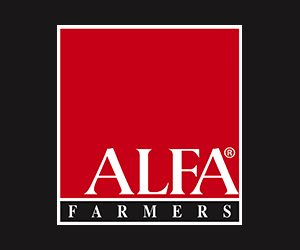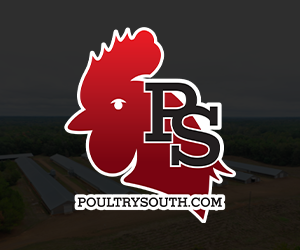From Our Blog
The Land Show Episode 176
The Land Show
February 23rd, 2019
This Week on The Land Show
- Rick Pate, Alabama’s new Commissioner of Agriculture and Industries, talks about new things happening at the Department.
- Penelope Lee, owner of Chapel Valley Farms in Cullman County, shares about the process of buying their farm. www.chapelvalleyfarms.com
- Dave and Jonathan answer a listener question about buying rural land with a Self-directed IRA.
- Brian Watts, President of the Timber Sales Division for SE Land Group, talks about the process and importance of getting a timber cruise done on a property. www.selandgroup.com/agents/brian-watts
- Tim Baker discusses chipping flints in our Outdoor Update. www.selandgroup.com/agents/tim-baker
Episode 176 Video Introduction
Transcription
Here is the transcription of this week’s first segment.
Dave Milton: Hey everybody, welcome to Land Show with Dave and Johnny. I’ll tell ya it’s a beautiful Saturday morning here. Even though it’s raining Johnny… I like the rain, it’s mild and the water tables are up, and good to see you my friend.
Jonathan Goode: Good to be with you man. I had my Tundra outfitted with an outboard this week and so, actually two outboards, and just putted on into the studio this morning.
Dave Milton: I’ll tell you what man, I’ve been wanting to take my niece and nephews out squirrel hunting and we needed a flat bottom boat in this kind of weather, so we’re going to try and squeeze one in, but… It’s good fishing weather now. Not so much in the creeks and rivers, it’s hard to fish the creeks and rivers.
Jonathan Goode: You mean in the streets and the ditches by the house or what?
Dave Milton: No… Well, that’s right. This is good farm palm weather right here.
Jonathan Goode: Absolutely, you ought to be able to tell right now what a property is going to look like in the rain. And it’s been good, I’ve shown several places this week and folks wanted to see it for just that reason cause you can get out there and see what it looks like after a heavy rain. So this is the time of year to be doing that, for sure.
New Alabama AG Commissioner, Rick Pate
Dave Milton: Absolutely. Well, listen man, again, great to see you. I’m excited about this show, we’ve got a jam-packed show. And I want to introduce our first guest, Mr. Rick Pate, now Commissioner Rick Pate. He’s our new commissioner for AG and Industries. Commissioner Pate, welcome to the Land Show.
Rick Pate: Well it’s great to be here. This is actually my first radio interview since the election. So I’ve been asking if people could let me have a few weeks to kind of figure out what’s going on. I think I’m getting there. It’s been a real blessing and we’re really enjoying it.
Jonathan Goode: Well I’m glad you’re on. I was telling you when you walked in the door, last time we had you on as candidate and now you’ve been in as commissioner. How many weeks have you been in the office?
Rick Pate: Well… it goes January 14th so I guess that’s roughly five weeks.
Jonathan Goode: Well we caught you early then.
Rick Pate: Fortunately I’ve kinda gotten my feet on the ground and sorta started understanding. I’ve told this several times… That first day going into work, that Tuesday after Inauguration, it was… it kind of hit me, I guess. It’s like, what are these 327 people are waiting for me to get there and get in that office and giving them some direction, and then you realize, I sat down and nobody was waiting on me to give them any direction. Everybody went to their jobs and started working and of course they do such important stuff there, whether it’s food safety or weights and measures… and nobody really, unless you work there, probably has got a clue for all we do that touches people’s lives. Anyway, I’m one of them guys after being in business 37 years… and I had an image of state employees, and I gotta confess, and I need to come clean, but I’ve been impressed with the people that work in department of AG. There’s a good spirit there and spirit of cooperation, and getting the job done. Most of those people have such unique skills. It’s not like some state agencies I guess if you were in personnel or different things like that. Some of those labs are very specific in what they’re looking for and what they’re testing for. And you walk in that seed lab and there’s a person bent over a microscope with a razor blade counting tiny seeds that are as big as a pin head and looking for weeds and seeds that are that tiny and counting them one by one. I asked the lady the other day, I’ve been in there a couple times, I said “Have you ever sneezed after a half a day of work?” She goes “No, but I tipped a tray over one day.” But it’s been very rewarding and very dedicated people. I’m starting to learn… I tell the story… after I knew I was going to win, because I didn’t have a Democrat, so when I won the Republican run off in July, I kind of had that six month purgatory to where I wasn’t being paid or didn’t have any staff, but I was still- people treated me like the commissioner elected. And I called this one guy up that I had heard a rumor he was leaving and I wanted him to stay, and I got him on the phone, I said “I’d really would appreciate you staying. I think there’s a role for you with me.” There was an awkward pause, I learned what merit system means that day, he goes “Well Rick, you can’t fire me anyways.” So really, most of those people, rightfully so, are in merit system jobs. In fact one guy came up to me that first week and said, “I’ve been here for eight commissioners.” And I said “Well that’s something.” And I realized the message was, I’m going to be here after I was gone, and for me to tread lightly about new things.
Dave Milton: Well you can fire him, its just gotta be egregious. You can fire him, it’s just… And they deserve it… most of them.
Rick Pate: You can document and stuff once I get there. There’s really department heads, and people are watching those people. So the main thing I gotta worry about is my executive staff and the people helping me and not get down in the seed lab or the food lab.
Jonathan Goode: Y’all do cover a lot. I don’t think most Alabamians realize that your department effects every person in our state every single day with what they eat, or putting fuel in the car, or what they wear. All of those things fall under the purview of the AG and Industries department. There’s a lot happening in your buildings over there.
Rick Pate: Oh yeah, and I was actually in the landscape and irrigation business as well as having cattle. I carried four licenses with the department of AG. They control so much to try to protect the consumer from, you had to have a… setting a landscape plants, licensed tree surgery, licensed ornamental turf pest control, license to do landscape design. I carried all four of those. So there’s a lot. You’ve got the plant division, of course we don’t want diseases that are out of our state that aren’t here yet being able to cross state lines. So there’s a system that anything that comes into Alabama, plant wise, has got to carry a certificate from those states saying they don’t have certain… And we conversely have to do the same. If we’re shipping products or plants across, not just animals, and everybody knows about cattle and things, even plants that have soil attached to them have to carry a certificate with them that we’re saying they don’t carry certain diseases. You could just go on and on. We touch everybody’s life.
Jonathan Goode: You really do. We had a guest on the show last week, a long time friend of mine named Steve Talley, he owns Talley’s Fruit Farms up in northeast Alabama. And he was talking to us about, I don’t guess it’s a new program necessarily, but y’all are expanding a program that’s taking food from local farms, and the local schools are purchasing food from their local farmers. That sounded really exciting. Tell me about that program.
Rick Pate: We were talking about it earlier, is I travel the state. It is a recurring theme that came up, is people want to know now where their food comes from and they want it as local as they can. There’s some smart people that have already done some smart things. What you’re referring to is the school to farm program. Every school district can… The problem with purchasing from the state is you got to take a bunch of bids, you gotta be on an approved vendor list, and then you got to take the lowest bid. Well the legislature in their wisdom said every school district can buy up to $250,000 locally without taking bids. So you can find a local farmer and be able to buy produce from him. And to me, that’s kind of a win, win, win. So you got the kids, they’re eating a dadgum apple rather than a bag of Cheetos that’s locally produced. You got a farmer there that’s going to have a place to sell his product and it’s helping that local economy where that kid’s parents live, and work, and where that farmer lives and works. So some of the schools… We have some other programs that the state does. The department of education did purchase some local products outside of that program also. But that seems to be working. We’ve actually, since I’ve been there, have expanded and put more resources in that. Don Wambles kind of heads that division and we think that, in the four years I’m going to be there, we going to give that department division whatever resources they need.
Jonathan Goode: It was really exciting, I read some statistics from the website last night, and it was talking about, I think it was a little over two million dollars that stayed in the local economies to these farmers. If you just had 200 farmers, that’s $10,000 a year going to these, each small farm. Like our friend Steve Talley, that’s enough to make his land payments for the year, or pay for a tractor. So having that kind of guaranteed income for a local farmer, that’s significant. That allows the school to benefit, that allows the farmer to know they’re going to get paid. And I just think that is a win-win all the way around.
Rick Pate: And that’s kind of part of the reason why I got in this race. I decided after 37 years in business, that I’d always seen the government, whether it was state or federal as an impediment to me being successful. Never really saw them as a partner. And you just think about all the reasons that the government should want to be a partner in business because you’re employing people, you got people paying payroll taxes, you’ve got people off unemployment. They ought to do everything. And that’s an example of someway, if we can keep the regulations from eating up that system where it’s so much trouble for a farmer to participate in it, yeah we just gotta convince local farmers that we can help them find a market. I think there’s plenty of people out there that will grow local produce for our schools.
Dave Milton: Commissioner Pate, speaking of the government helping local farmers, I was excited talking to you off air a few minutes ago about… you were saying that one of your big goals moving forward was to increase the number of farmers markets and the participation with the local farmers in the farmers market. And speak to that. I mean that ties right into the school program in that there’s more and more farmers markets, more and more people participating, and speak to how the Department of Ag and Industries participates with that.
Rick Pate: I’m from Lowndes County so I’ll speak about it. There’s a farmers market that was built outside of Hayneville. I’ve never seen anybody sell local produce there and nobody buy. But if you go to the town square in Hayneville, they’re selling local produce. And I think sometimes as government, I don’t think I am government, we try to predetermine how that ought to work and where it ought to be. I think a lot of time that stuff just needs to happen organically and we need to be behind there supporting those people. We had, I forget, ten or fifteen years ago, went into this massive building program of building farmers markets. Most of those we’ve sold or have been abandoned. The whole idea… There’s some smart people… I was in some meetings last week with some really smart people that are trying to put together sort of a group of farmers, trying to approach some bigger grocery chains, like a Whole Earth, a Publix, and we get a big enough co-op of people growing enough products, and guarantee we’re going to have products long enough. And really, try to find pockets in the Black Belt in particular, but rule Alabama in general, just where people can make a living and stay in those areas. It benefits us all. I think as a society, none of us want to see everybody, all the young people, gravitating to the big towns or cities in Alabama. Much less we don’t want them going to Nashville and Atlanta. It benefits us all the way around. Anything we can do… We don’t want to be the… get out front and telling people what they need. What we want to do is make sure were not an obstacle and we can help them where we can.
Jonathan Goode: I like the sound of that. Dave and I are all for smart government. Now I think that having somebody that was in private industry for 37 years before stepping into this role, that gives us a lot of confidence that you see it through the eyes that we would want our AG commissioner to see this through. Well listen, we would be remiss if we don’t ask you… I know that there’s a topic that has probably come across your desk, you’ve probably dealt with it a lot here, and that’s industrial hemp. With the recent changes in the farm bill and things that are happening, what is happening with industrial hemp in the state of Alabama?
Rick Pate: Hopefully that’ll be a pocket there for rural people to be able to find a place to make a living. We are going to release our, or I guess we’ll have already released it, on February 22nd, we’re closing applications to plant industrial hemp. It’s called a pilot program. We’re actually not operating under the 2018 farm bid, because of course the government went on shut down. So they hadn’t promoted any rules. What we’re operating under, it was a 2014 farm bill authorized us to set up pilot programs. And then the 2016 Alabama legislation authorized us to do that too, so we’re really, what we’re doing this year, is we’re going to control the release of industrial hemp seed, and monitor who grows it, on how the crop is done, and then there will be some requirement for whoever gets the seed to have to report back to us about how it does. Because we don’t know yet what varieties are going to do well, what… I mean you can’t transfer what worked in Colorado to what’s going to work in Alabama. The temperate zones are just too different. What works in north Alabama might not work in south Alabama. So this year is that year. And I don’t know that a lot of money, I doubt any money hardly, will get made this year. But the people that apply will probably have a leg up as far as knowing what worked and didn’t work. But we are certainly trying to caution people not to put their seed money in this. This is really going to be a learning year for all of us.
Jonathan Goode: I think also, probably good advice for folks driving down the highway or walking through the woods, if you see a plant that looks strangely familiar, don’t always assume the worst about it now.
Rick Pate: They assured us that if you tried to smoke this product, you’ll get sick way before you feel any sort of high from it. If you see a 40 acre field of something, you might want to stay out of it.
Dave Milton: Well I’ll tell you, Commissioner Pate, it’s been a great interview and I just want to… I know you want to do this, but I just really want to give a lot of recognition to Commissioner McMillan, he did a tremendous job. I know he’s a friend of yours, and he’s our new treasurer. I watched how he ran the department and the efficiencies he created. Just speak to some of the things that he got started that you want to build on, and maybe some new things that you want to do moving forward.
Rick Pate: Well John inherited a really difficult situation. That was that 2006 years when we were coming off so much prosperity in Alabama. Everybody’s making money, and the stock market was blowin and goin. So that department probably had gotten a little fat. So John came in right there and it probably did hurt morale and probably ended up having to shut some entire departments down, and probably laid off about 25% of the work force. So it took him a while to get that sort of corrected. But I’m walking into so much better situation. John told me, months before I went in, said this will be the most seamless transition there’s ever been. So I was real cautious of six months I mentioned, that purgatory, where I wasn’t actually commissioned, to stay out of his way and not let people pin me in and saying, “The commissioner said this,” or “the new commissioner said this.” John was still the commissioner. Since John, since January 14th, John’s been perfect. If I called him or I run into him, we’ve talked. He hasn’t interfered. Everybody is going to be a little bit of their own personality and their own stamp. So we’ve got a nice blend. I think we’ve kept some of his people, and some of the institutional knowledge that John had brought in, and brought some new people in too. We feel like we’re real lean. I probably hired the fewest that any new commissioner has hired. So my feeling was rather than having a bunch of people trying to find stuff for them to do that first six months, just come in with a few people, lets get everybody busy, and then we’ll start to say, “well hey, we got a couple of jobs still open. What are we lacking? What skill set don’t we have.” Anyway, I couldn’t thank Commissioner McMillan more. He was a source of so much information during the campaign. He’s just been a true gentleman. Been great to have as somebody I can go to if I had an issue.
Jonathan Goode: Well we look forward to having you in here. You got an open mic and an empty seat any time you want to come in. And if there’s something big going on with the department, we want you to have the freedom to speak with us. That’s why we jumped on it five weeks. We wanted to be your first interview. Because I know, we really do feel like… we don’t endorse very many candidates for sure.
Dave Milton: Four for four.
Jonathan Goode: So knowing that there’s somebody that’s been on our side of the table, and meaning a business owner, that sees things very similarly to how we would see them, I think that’s great. Especially for one of the most active departments in the state of Alabama. So I think it’s great. Anything else you see coming down the pipeline that you want to share with us here?
Rick Pate: Well, and I hope people will feel like that. I feel the cattlemen made that point. They had their convention this weekend and introduce them. I still have 50 head of purebread Charolais cattle and I’m probably one of the few AG commissioners lately in a while that’s actually owned cattle. I think from being in business, growing up in a rural county like Lowndes County, being a mayor for the last 14 years of a little town with a part-time water operator and a part-time clerk, yeah, I feel like my experiences have prepared me for this. There hasn’t been one day that I’ve been there and thought, “Wow, I’m just overwhelmed, I don’t know what to do.” Not that I’m the smartest guy in the world or anything like that, but I certainly got plenty of life experiences and common sense that I think would… I know smart people and certainly could call them. I’m just excited. If I can help you, we’ve got a willing, able staff waiting. Just call us any time. We’d love to be back on.
Jonathan Goode: What is that website for the department? Last night I just googled department of Alabama’s AG, department of AG and Industries. So agi.alabama.gov. And that will get you there. And you guys have got all your bases covered. The website has got a ton of information and contact for all the right departments.
Rick Pate: My email is rick.pate@AGI.alabama.gov. Somebody will look at that email the same day you send it. We’ll get back to you if it’s not too difficult of a question right away.
Jonathan Goode: Well I will say, I know you’ve surrounded yourself with good people, and Miss. Anna Beth Harris, she’s top-notch, she’s been great to deal with so far. So I know you’re in good hands. Well Commissioner Pate, thank you so much for being on The Land Show today. And we look forward to keeping in touch with you.
Rick Pate: It’s been fun, I appreciate you having me.
Jonathan Goode: Well Dave, I really enjoyed having Commissioner Pate in here. I think he is going to do a great job. Look forward to having him as a friend of the show through the years. Y’all stay with us, we’re going to take a quick break here from some of our sponsors. Back for more with The Land Show with Dave and Johnny.





